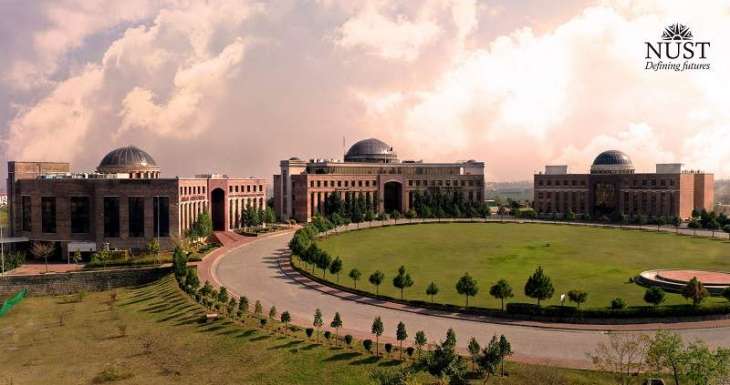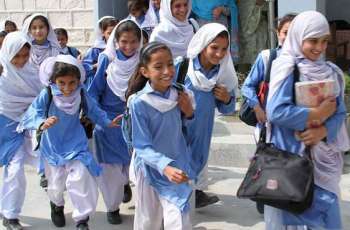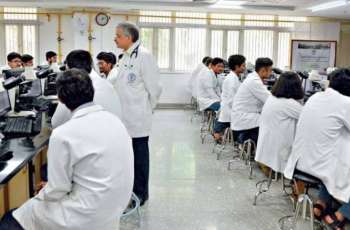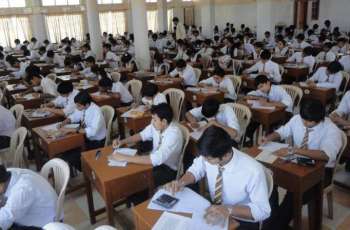The existence of a comprehensive S&T-based apparatus is a crucial determinant of long-run growth, economic independency, and the competitive edge of a state
Islamabad (Pakistan Point News - 28th Jul, 2020) The existence of a comprehensive S&T-based apparatus is a crucial determinant of long-run growth, economic independency, and the competitive edge of a state. A highly globalised contemporary world environment necessitates the adoption of S&T and innovation-oriented strategies for rapid growth in relevant output measures. Accordingly, with a view to determining answers as to how Pakistan can advance its domestic S&T infrastructure, capitalise on existing opportunities and acquire competitive advantages, the NUST Institute of Policy Studies (NIPS) organised an international webinar on the “Role of Science & Technology for National Progress, Growth and Competitiveness,” here on Tuesday.
NIPS, the NUST’s think tank, is a leading national policy research and advocacy forum that seeks to promote and enrich policy dialogue, and furnish viable solutions. The virtual event was chaired by Lt Gen Naweed Zaman, HI (M), (Retd), Rector NUST & Patron NIPS. The resource persons of the webinar were Dr Malcolm Parry, CEO Surrey Research Park, United Kingdom; Dr Kang Dachen, Professor at Institute of Policy & Management, Chinese Academy of Sciences (CAS); and Dr Masoom Yasinzai, Rector International Islamic University Islamabad (IIUI). The webinar was moderated by Dr Nassar Ikram, Pro-Rector Research, Innovation & Commercialisation (RIC), NUST & Vice President National Science & Technology Park (NSTP) at NUST.
In his remarks, the Rector NUST said that technology in the contemporary world is a critical factor of productivity and, if used rationally, can yield breathtaking outcomes in terms of inclusive socioeconomic growth. He maintained that NUST has fostered a knowledge ecosystem, which stimulates high-impact research and inspires innovation and entrepreneurship, so much so that the university is now internationally recognised for its burgeoning S&T base and resultant contributions to national economy through cutting-edge research and transfer of indigenously built technologies to the industry. He also made special mention of recent breakthrough undertakings of NUST, including the establishment of Pakistan’s first National Science & Technology Park (NSTP) and N-ovative Health Technologies (NHT), which is also Pakistan’s first-ever facility for the manufacturing of cardiac stents and other medical devices.
Dr Malcolm Parry appreciated Pakistan’s strong potential for S&T-led innovation and speedy growth. He pointed out that the establishment of the science park at NUST was a step in the right direction and could provide the breakthrough in the much-needed modernisation and new growth in Pakistan. Dr Parry highlighted that this transformation required a spirit of open innovation and multi-dimensional collaboration among key stakeholders. Dr Parry identified three journeys that science parks needed to focus on for the growth of startups into profitable businesses, namely, technology journey from the idea to the market, the market journey based on finding customers critical to success, and the regulation journey based on legal activity promotion and investor-friendly tax regulations.
Dr Kang Dachen identified the strategic five-in-one approach taken by China for S&T modernisation and national development. He stated that this approach had consisted of five prongs, namely, according central position to S&T in national development planning and governance, promoting independent research and development, orienting S&T to directly support economic and social development, creating a strategic national S&T force consisting of the national academy of sciences, public research entities, and universities, and keeping pace with global S&T developments. He stated that a high level of open and dynamic interaction needed to be ensured between these five prongs.
Dr Masoom Yasinzai highlighted the urgent need for the leading universities in Pakistan to take the lead in providing potentially successful policy recommendations in major areas of national development. He said that there was a need to prioritise research funding and increase public S&T funds substantially. He highlighted that there was a need for universities in Pakistan to not only create a greater quantum of intellectual capital but also a greater sum of social capital in terms of promoting trust-based networks of creative reciprocity between their workforces and student populations so that increased inter-university collaboration could spearhead the process of S&T-based development of the country.
President Pakistan Academy of Sciences Dr Qasim Jan, Director CPEC Research Centre China University of Geoscience Wuhan Dr Xiaoqing Xie, distinguished agricultural scientist Dr Kausar Abdulla Malik, Executive Director China-Pakistan Joint Research Centre on Earth Sciences, Islamabad, Dr Hong Tianhua, and Chief Technology Officer China Mobile Pakistan Rizwan Younis were also in attendance.




